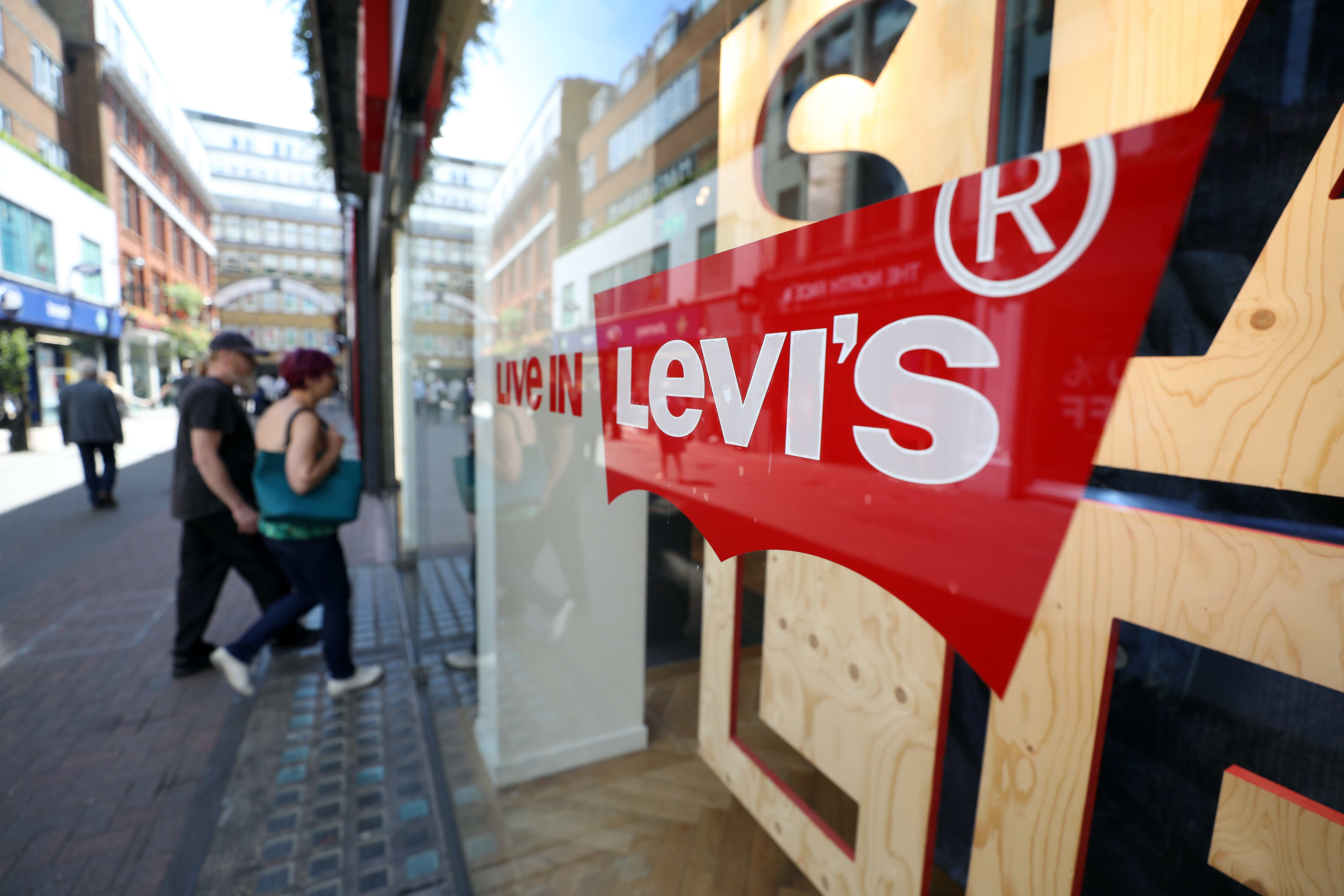
A Levi’s logo on the window of a Levi Strauss & Co. store in London.
Chris Ratcliffe | Bloomberg | Getty Images
Levi Strauss & Co. shares soared more than 12% Tuesday after the denim maker reported online sales growth of 52%, which helped offset losses elsewhere in the business during the fiscal third quarter.
Overall sales fell 27% due to coronavirus pandemic-related store closures, and net income tumbled 78%. But the declines were less than the company had anticipated, and topped its own internal targets.
CEO Chip Bergh cited recent investments in building out its direct-to-consumer business for strong performance. It also gained market share in the key women’s apparel category.
“This quarter was much better than we expected, and it’s a little bit of an out-of-body experience for me to say that when revenues are down 27% … but we were profitable,” Bergh said in an interview with CNBC.
“All of the actions that we took, the tough choices that we had to make very early in the pandemic, are really starting to pay off,” he said.
Here’s how Levi’s did during its third quarter ended Aug. 23 compared with what analysts were expecting, based on Refinitiv data:
- Earnings per share: 8 cents, adjusted, vs. a loss of 22 cents expected
- Revenue: $1.06 billion vs. $822.2 million expected
Levi’s net income fell to $27 million, or 7 cents per share, from $124 million, or 30 cents a share, a year earlier. Excluding one-time charges, Levi’s earned 8 cents per share, better than an expected loss of 22 cents, according to Refinitiv.
Net revenue fell to $1.06 billion from $1.45 billion a year earlier, beating expectations of $822.2 million.
In the Americas, its net sales fell 29%, while they were down 16% in Europe and down 42% in Asia.
The company said its digital revenue globally, which includes sales on its own websites as well as its wholesale partners like Amazon, grew 50% year over year, and made up about 24% of third-quarter sales — double year-ago levels.
Sales from Levi.com alone were up 52%, as customers flocked to Levi’s website for back-to-school denim and tees.
Wholesale revenue fell 29%, while direct-to-consumer sales, which include sales from Levi’s owned stores and from Levi.com, were down 22%.
Levi’s said it expects its business to be significantly hurt from the uncertainty created by the pandemic for at least the rest of 2020, with the possibility of coronavirus-related charges weighing on its results.
It said its total inventories by the end of the third quarter were up 1% compared with a year earlier, putting them in a “healthy” position ahead of the holidays.
“I am cautiously optimistic that we’re not going to have to go down the rabbit hole on promotions … which I think is good for brand health,” Bergh said about the upcoming holiday season.
Levi’s shares are down about 22% this year. The company has a market cap of roughly $6 billion.




